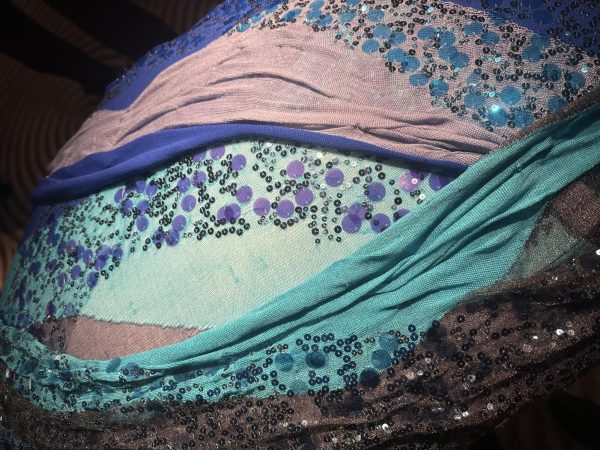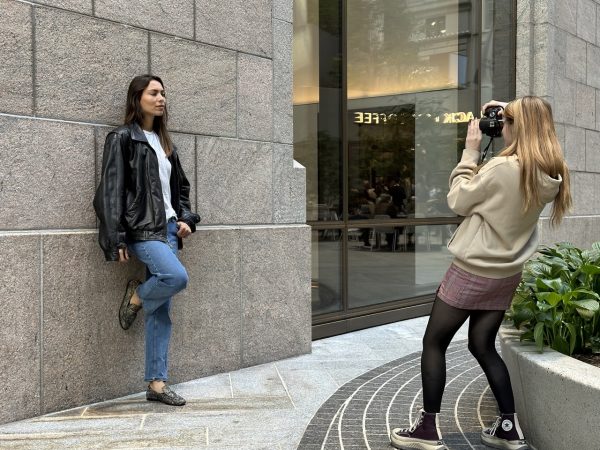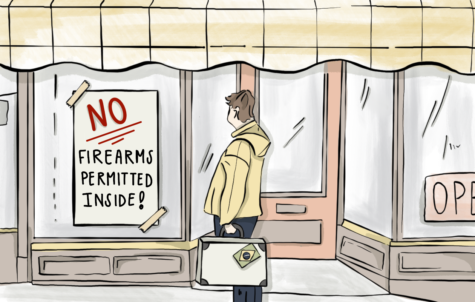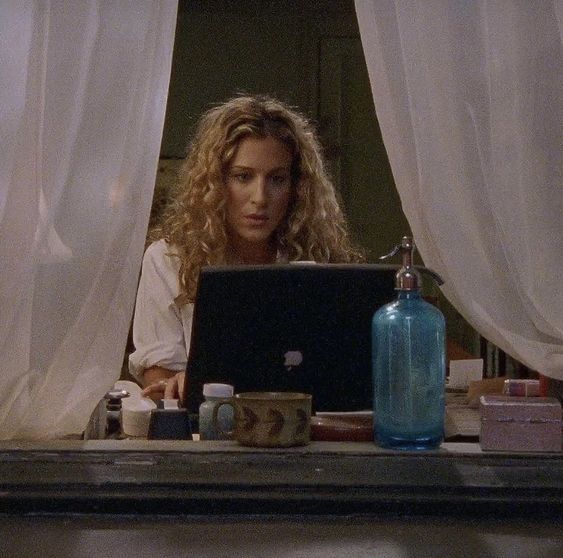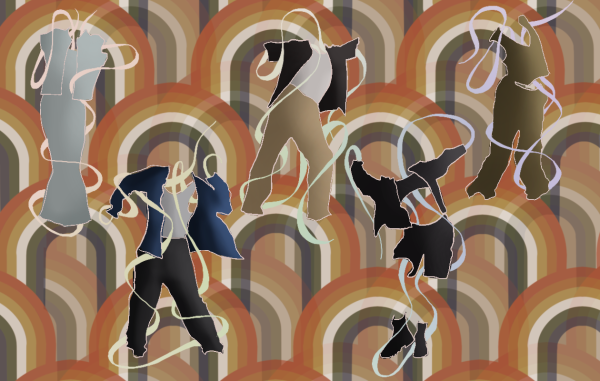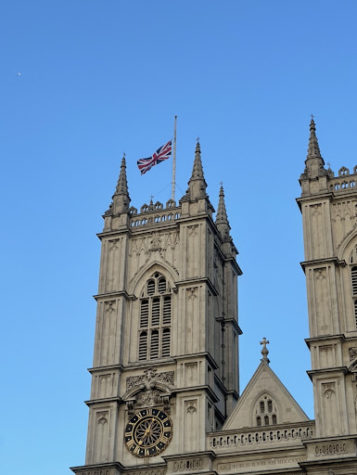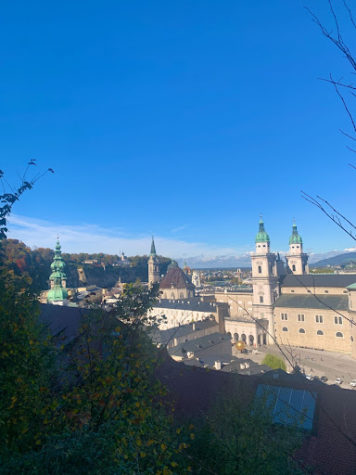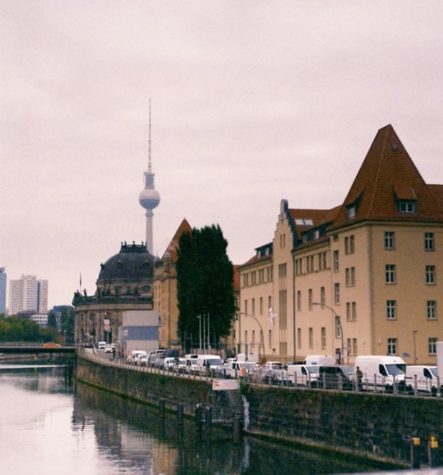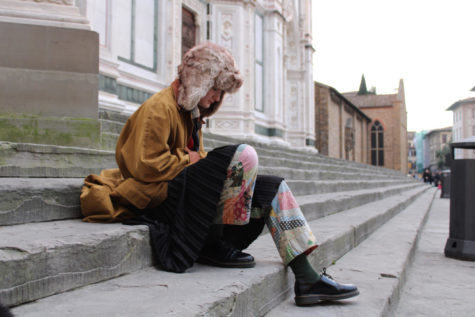keep your boundaries abroad
Content Warning: This article is a first person perspective surrounding themes of sexual trauma and violence.
Studying abroad is often portrayed in a highlight reel. The study abroad experience is synonymous with stunning outfits on Instagram, gorgeous rolling landscapes and a lively nightlife to entice young students. I studied abroad in Florence, Italy, in the first semester of college. I chose to go because I wanted a unique way to begin my college experience and wanted to connect with my Italian family’s culture. I will forever be grateful for my time abroad; it was a transformative experience that I continue to learn from now.
The allure of clubbing, binge drinking and reinventing yourself are often thinly veiled scenarios in which your boundaries are not respected. At the time, I perceived my excitement towards going to the disco and meeting new people as a celebration of this immersive experience. I was enjoying a fun and carefree version of myself. However, I was naive and easy prey for older people who targeted vulnerable young Americans. Everyone who travels through Italy is aware of the cat calling, harassment and hypersexualization of women. You experience Italy in layers: first you are in awe of the beauty, and then you open your eyes to the abuse and oppression. As you smell the fresh lemons being sold at the outdoor market, the patriarchal dominance starts to weigh on your shoulders. Italy is a white man’s world.
I was drugged and assaulted at the bars I frequented. I was coerced into sexual activity I did not consent to by both men and women. The first time it happened was a distinct schism in the understanding of myself. When I woke up the next day covered in bruises, I scrubbed my skin with a metal loofah. I offered to walk across town and get breakfast for my roommates. I wanted to feel clean and useful again. I bought a white coat the day after it happened to feel pure again, to throw myself a desperate second communion celebration. I walked around the most beautiful and holy locations in Italy, listening to “Jesus is King” by Kanye West and reflecting on the convergence of the assault I experienced with my religious upbringing. In many ways, my time in Florence consisted around the beautiful scenery being the backdrop for my fixation on what I had survived and my developing shame.
As jarring as my experiences were, they were not unique and even paled in comparison to some of what my peers experienced. I knew underage girls that were kidnapped, manipulated and abused. According to The American Psychological Association’s report “Study Abroad Increases Risk for Assault in Female Undergraduates,” 90.7% of all the reports of sexual violence in Italy were made by women. More than half the women in Italy report being assaulted in their life, and there are most likely other women who have not been given the resources to identify times in which they were abused. The APA’s investigation revealed that while there are obvious benefits associated with study abroad programs, sexual and physical assault occurring during the experience have been historically reported but not systematically assessed. As I have gone on to speak fondly of my time in Italy, and even present on panels advertising studying abroad, I can’t help but wonder why no one is addressing the danger and trauma women experience while traveling. Is no one talking about assault abroad because it is mainly impacting women?
Being an impressionable 18-year-old learning to live with trauma was hard enough. My sexual trauma was transposed with my struggle to accept my sexuality. But the #MeToo movement had not yet become accepted in my conservative household. My parents always reinforced respectability politics and I was conditioned to believe I did something to deserve the violence. Through learning about other women and people from the LGBTQ+ community who had survived assault, I felt validated in my response to the trauma. Shortly after my semester abroad in 2019, the world seemed to implode.
COVID-19, the 2020 election, Black Lives Matter and my own trauma ushered me into an era of discovery. I began to fill in the hidden histories that public education and conservative upbringings conceal. I had to learn and address my own privilege as a white, cis-gender, middle-class woman. My recovery period allowed me to realize the necessity for intersectional feminism and for supporting people of all identities. I created my own version of a feminist, gay awakening through self-education and trauma-informed therapy. Some resources that particularly helped me were “Eloquent Rage” by Brittany Cooper, “Hood Feminism” by Mikki Kendall and “Women Don’t Owe You Pretty” by Florence Given.
In scenarios when it is normalized and promoted to transform your identity, it is necessary to realize that part of self-transformation is preserving the authentic parts of yourself. If you have boundaries regarding how people address you or physically interact with you, honor those boundaries. Your boundaries are your boundaries regardless of your location.
It is a useful exercise to write down your boundaries and expectations before beginning any new experience (traveling, new relationship, new career, etc.). Ask yourself the following questions:
- How would I describe myself now?
- How do I want to grow from this experience?
- How do I want to be treated?
Keeping a diary or record of your experiences is another therapeutic practice that can be taxing to maintain. When I experience trauma, I often find myself avoiding documenting the pain in order to survive the moment. This coping mechanism is valid; however, I am grateful that I eventually recorded my experiences so that when I felt shame, I could have proof of that disturbing time in my life. The ability to detect and write about past situations in which my boundaries were disrespected aided in the healing process. I can use documentation of past events as a reminder to myself why I must honor my intuition.
Before I left for studying abroad, my Nonno left me with two parting words of wisdom: “Be precise.” At first I thought that he meant to enunciate when I spoke Italian, but I found these two words to have a profound meaning. When I am in a new environment, the best way to maintain my peace is to be precise about my expectations. These are my boundaries: I want to be respected and appreciated for my work. I want to be embraced for my identity. I want my experiences to be believed and validated. Precisely.
I have been able to transcend past the shame I acquired in Italy. The intention of this article is not to present a cautionary tale about traveling. I realized that the purpose of this trauma was for me to understand the importance of both respecting my own boundaries and advocating for others. I have learned that life is meant to be lived fully; so, go travel and move to new places and meet new people and try new things. But as we try on different versions of ourselves in these new settings, it is vital that we remember our boundaries, strive to be our highest self and help others along the way.
Resources
There are steps travelers can take to minimize the threat against their personal safety. Students participating in study abroad programs should be aware that sexual assault can happen any time and any place, not just at night or in a bar. They should research the country to be visited; be aware of cultural norms, including gender issues, appropriate dress, interpersonal communication/interactions and personal space; know the neighborhoods or areas to avoid.
Students should immerse themselves in the culture or experience of being abroad, but do so in a responsible manner commensurate with how they would act at home. Students should aim to travel with peers; however, when traveling alone, they should stay in populated areas and maintain regular contact with friends/family.
Students should try not to look like tourists. Even though some assailants are not looking to target an American student specifically, the outward appearance of being wealthy (flashing an expensive camera, mobile device, jewelry, maps, currency, etc.) or foreign could lead to being targeted.
What should students do after an incident?
If students suffer sexual assault abroad, they should contact the nearest U.S. embassy or consulate to determine appropriate next steps. Alternatively, they or their families can also call the Department of State in the U.S. at 1-888-407-4747 (from the United States or Canada) or 202-501-4444 (from overseas). Consular officers are available to help the students obtain medical care, explain the local criminal justice process and connect students to local and U.S.-based resources.
Support Student Media
Hi! I’m Catie Pusateri, A Magazine’s editor-in-chief. My staff and I are committed to bringing you the most important and entertaining news from the realms of fashion, beauty and culture. We are full-time students and hard-working journalists. While we get support from the student media fee and earned revenue such as advertising, both of those continue to decline. Your generous gift of any amount will help enhance our student experience as we grow into working professionals. Please go here to donate to A Magazine.


